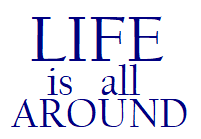“Who am I?”: while some can claim this is a big question, others may say it is stupid. In any case, it seems we have not agreed on a specific answer. There are different opinions and theories around this question. This article hopes to provide some food for second thoughts.
Identifying with accumulations
Many believe we are our minds. And there is also a common saying: “We think, therefore we are”. Although this a very popular opinion, it does not mean it is also true. You can just see for yourself: what comes first? Thought or being? If you look at it, you can see that being comes before thinking.
Logically speaking, we cannot be what we accumulate. After all, something was there before the accumulation took place. Our own body is made from food. We eat an apple and this apple is made into human flesh and blood within a few hours. If you identify with your body, it means you also identify with your food.
The same applies to our minds. As our body is an accumulation of food, similarly, our mind is an accumulation of impressions. What you saw, smelled, touched, tasted, or heard during your entire life has made you the person you are. Your personality and your mind are a function of the impressions that come from the five senses.
The role of likes and dislikes
We people can have a lot of identities. There are nations, religions, races, gender to speak of a few important ones. At the same time, there are thousands of other less noticeable identifications we may form. It can be our favorite sports team, the company we work for, the phones or gadgets we use, our hobbies, the job we do, the friends we have. Anything can be used as an identity.
Hence the question: “What makes an identity happen?” From a certain perspective, the basis of identification is our likes and dislikes. Because we like something, we slowly identify with it. For example, we like a certain politician and hence we identify with their party. Similarly, because we dislike something, again we create an identity that fights what we dislike. If we dislike the politician, we would identify with the opposite party.
In short, our individuality can be thought of as mental boundaries that we have set up in the form of preferences and dislikes. If we had different experiences in life, we could very possibly have other likes and dislikes. This means our minds, personalities, views, opinions, beliefs would all be different. In other words, our identities would be different.
Being life
So far, this article talks more about what we are not rather than what we are. Although it may seem contradictory, it is still a certain way to approach the “Who am I” question. If we establish what we are not, then we will be closer to find what we are. After all, if we take false conclusions about our identity, we could never hope to find the real answer. This is because our minds are meant to protect our beliefs and identities.
Regardless of whether your beliefs are right and wrong, you would never admit your beliefs are faulty. As far as you are concerned, you are right and everyone else with opposing beliefs is wrong, or at least ignorant. You will do everything in your power to protect your identity, because you would feel bad if you don’t. This is the nature of the human mind.
What if you identify with everything though? Everything in life. Without any beliefs or opinions. You don’t identify with your mind and anything that the mind may produce, from ideas to doctrines. You just identify with life and whatever is life. You are life after all. That is beyond doubt. No matter what others may do or say, nobody can take your humanity from you. You are life.
Takeaway:
- We cannot be what we accumulate. As our body is an accumulation of food, similarly, our mind is an accumulation of impressions
- The basis of identification is our likes and dislikes. Our individuality can be thought of as mental boundaries that we have set up in the form of preferences and dislikes
- No matter what others may do or say, nobody can take your humanity from you. You are life.



